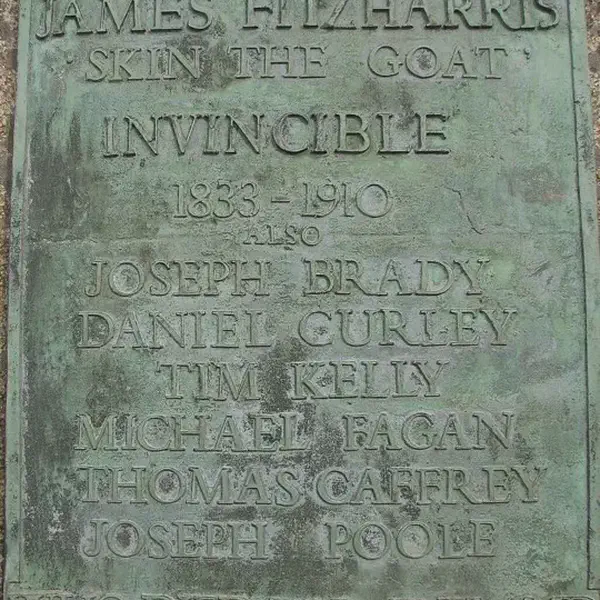
James Carey, Member of the Invincibles, Turns Queens Evidence
July 29, 1883
The Irish National Invincibles, usually known as the Invincibles, were a splinter group of the Irish Republican Brotherhood.
This group of assassins were active in Dublin between late 1881 and 1883, with an intent to kill the authorities in Dublin Castle.
Phoenix Park Murders
Main article: Phoenix Park Murders After numerous attempts on his life, Chief Secretary for Ireland William Edward “Buckshot” Forster resigned in protest of the Kilmainham Treaty.
The Invincibles settled on a plan to kill the Permanent Under Secretary Thomas Henry Burke at the Irish Office. The newly installed Chief Secretary for Ireland, Lord Frederick Cavendish, was walking with Burke on the day of his arrival in Ireland when the assassins struck, in Phoenix Park, Dublin, at 17:30 Saturday, 6 May 1882.
The first assassination in the park was committed by Joe Brady, who attacked Burke with a 12-inch knife, followed in short order by Tim Kelly, who knifed Cavendish. Both men used surgical knives. The British press expressed outrage and demanded that the “Phoenix Park Murderers” be brought to justice.
A large number of suspects were arrested. By playing off one suspect against another, Superintendent Mallon of “G” Division of the Dublin Metropolitan Police got several of them to reveal what they knew.
The Invincibles’ leader, James Carey, and Michael Kavanagh agreed to testify against the others. Joe Brady, Michael Fagan, Thomas Caffrey, Dan Curley and Tim Kelly were hanged by William Marwood in Kilmainham Gaol in Dublin between 14 May and 4 June 1883. Others were sentenced to long prison terms.
No member of the founding executive, however, was ever brought to trial by the British government. John Walsh, Patrick Egan, John Sheridan, Frank Byrne, and Patrick Tynan were welcomed in the United States, where sentiment toward the murders was less severe, although not celebratory.
Aftermath
Carey was shot dead on board Melrose Castle off Cape Town, South Africa, on 29 July 1883, by Donegal man Patrick O’Donnell, for giving evidence against his former comrades. O’Donnell was apprehended and escorted back to London, where he was convicted of murder at the Old Bailey and hanged on 17 December 1883.[